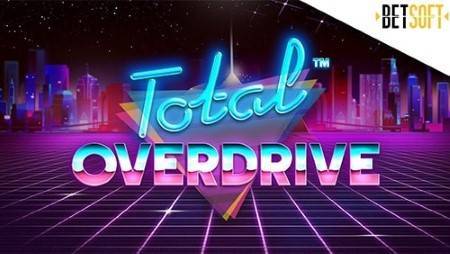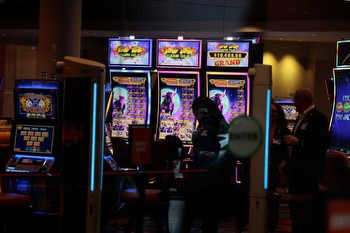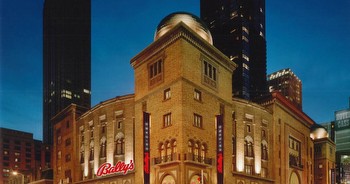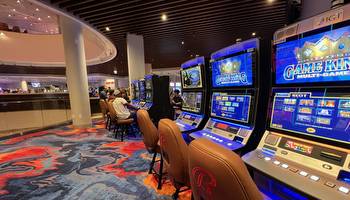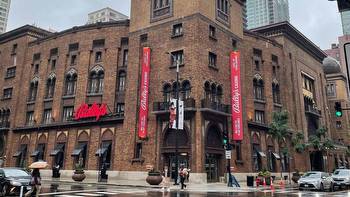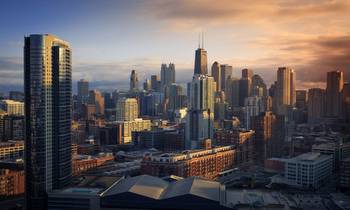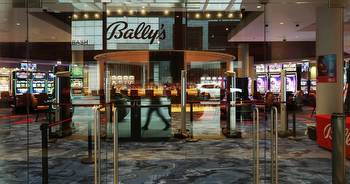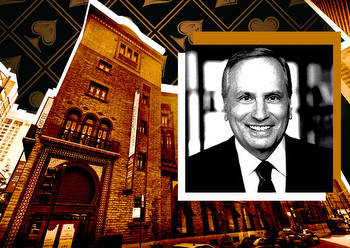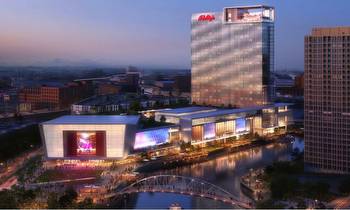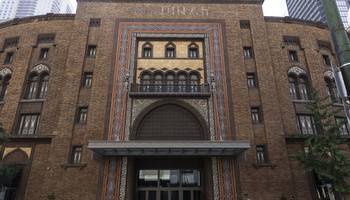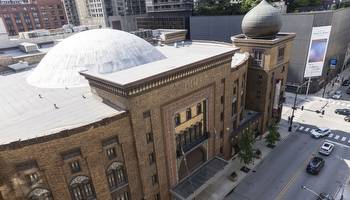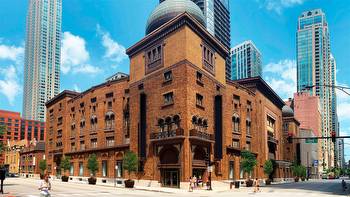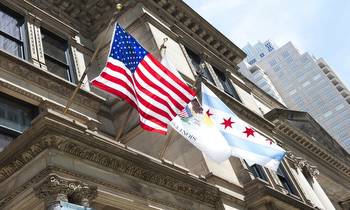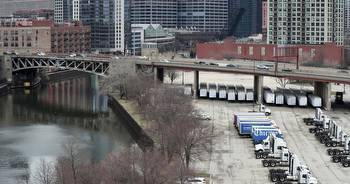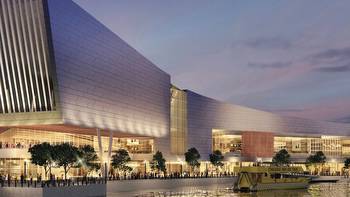Bally's Chicago Casino Posts $7.6M In November Revenue
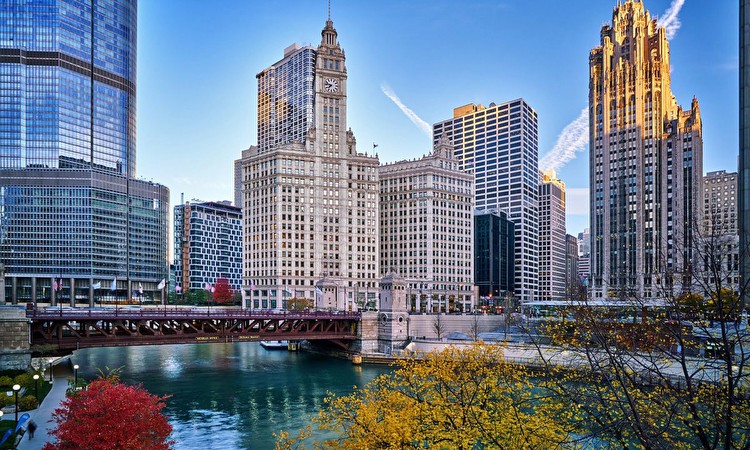
The Illinois Gaming Board reported Thursday that Bally’s temporary casino in downtown Chicago generated $7.6 million in adjusted gross revenue in November, a figure that was practically flat compared to its first full month of wagering in October.
Bally’s separately pointed out its gross gaming revenue for November was $8.9 million, noting what it called “gradual growth.” The venue at Medinah Temple in the River North neighborhood of Chicago opened in September and will be in operation through the fall of 2026 until Bally’s is finished building its permanent $1.7 billion casino on the Tribune Publishing Plant grounds in nearby River West.
Bally’s was one of 15 casinos in action across Illinois, which saw its venues generate a combined $130.4 million in AGR in November. Rivers Casino in Des Plaines continues to be the state’s bellcow, totaling $43.5 million in overall revenue.
Bally’s has generated $21.9 million in adjusted revenue — $13.4 million via slots — in 85 days of operation through the end of November, resulting in $2.8 million in state taxes and an additional $2.2 million in local receipts. Previous Chicago Mayor Lori Lightfoot had projected $12.8 million in casino tax revenue for the city in 2023, and $50 million annually while gaming is conducted at Medinah Temple.
Admissions tick slightly higher from October
Bally’s ranked third in table games revenue at slightly less than $3 million as Grand Victoria Casino in Elgin generated nearly $300,000 more in winnings. More than 86,000 admissions were counted at the downtown Chicago establishment, an increase of 4% from October as Bally’s edged Grand Victoria for second in that category in November.
Bally’s averaged $88 in AGR per admission, down from $91.55 in October. The overall average is $87.62, though there is room for upside as the nearly 250,000 admissions since opening ranks a strong second behind only Rivers in that span.
As casino gaming goes on downtown, Crain’s Chicago Business has reported the U.S. Attorney’s Office and the Chicago Inspector General are conducting separate investigations into the process that ended with Bally’s being the city’s preferred operator to apply to the Illinois Gaming Board for the downtown license in May 2022. Crain’s is reporting the federal inquiry was initiated by losing bidders, which could mean Rush Street Gaming, Hard Rock, or both. In April, it was learned that Bally’s paid only $300,000 for its two proposals combined, while Rush Street paid the $300,000 fee per proposal for its two plans to build downtown.
Also at issue was that the city consultant retained to rate the financial strength of the bidders had previously raised money for Bally’s and that the city had signed off on Bally’s building at the Tribune plant despite not having reached an agreement to purchase the land from Alden Capital until May. Bally’s, which received a 12-month extension to operate at Medinah Temple in October, will not break ground at River West until next July at the earliest.
Rush Street’s Rivers 78 was one of three finalists for the license along with Hard Rock, but Lightfoot opted for Bally’s proposal, which included a $40 million upfront payment she was able to plug into the Fiscal Year 2024 budget during her failed reelection bid.
Golden Nugget forced to disassociate from supplier
Also Thursday, the Illinois Gaming Board voted to make the Golden Nugget casino in Danville economically disassociate itself from key person Matthew Monson, whose licenses as a video gaming terminal (VGT) operator and casino license supplier were revoked by unanimous 4-0 votes.
Monson, who had applied to be a key person with Golden Nugget through the company Equitable Veteran Solution, was the subject of a disciplinary complaint by the IGB filed in July 2022 in which he failed to disclose the additions of sales agents in a timely manner with his VGT company Veterans VGT, LLC, dating back to 2019. He also allegedly misrepresented information to the board in violation of the Video Gaming Act.
The state agency amended its disciplinary complaint in November to include six counts in total, including failure to disclose sales agents in a timely fashion, misrepresenting sales agents start dates, and intentionally making false statements. The 4-0 vote to force the economic disassociation preceded the motions to revoke Monson’s VGT operator and casino supplier licenses due to the disciplinary complaint being approved.







